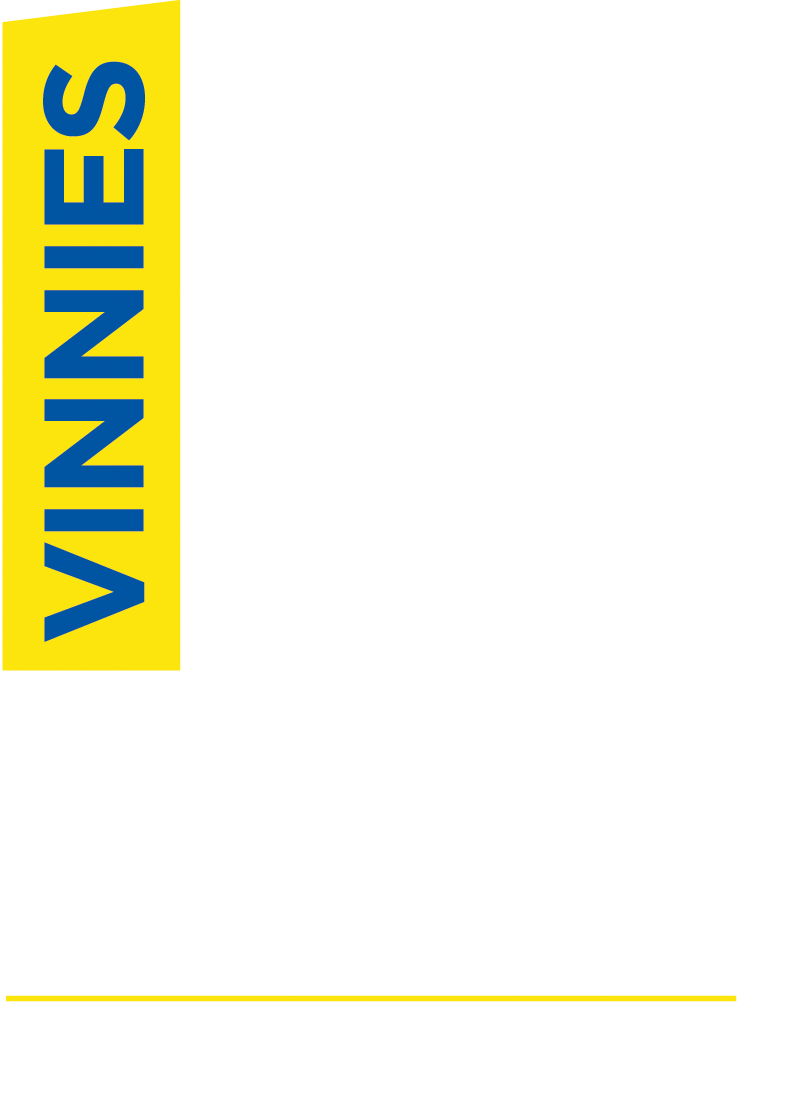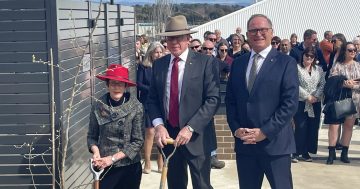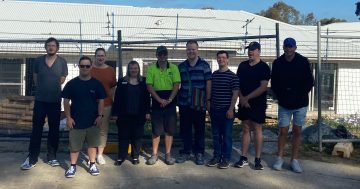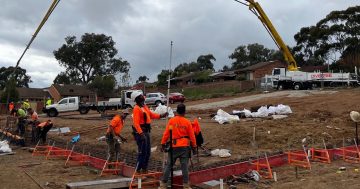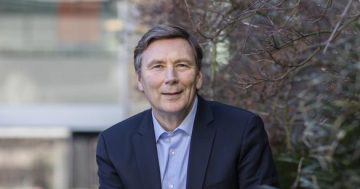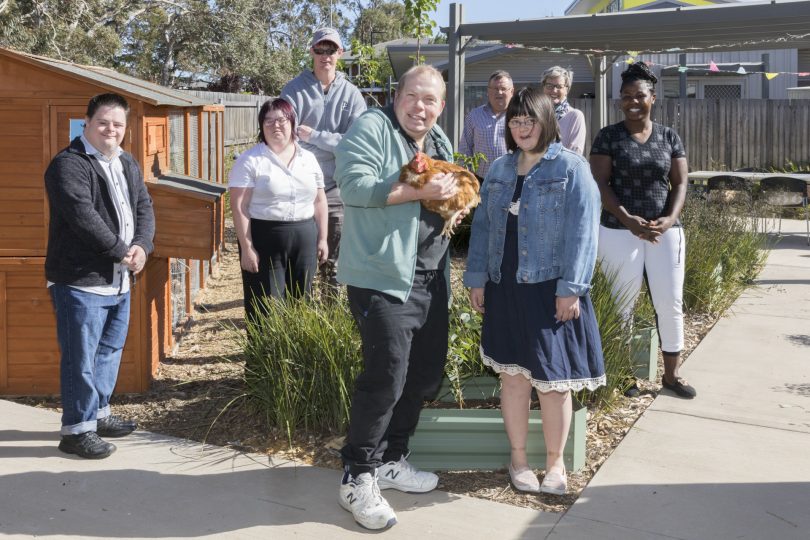
Project Independence residents at Harrison enjoy developing friendships and living skills with staff support. Photos: Michelle Kroll, Region Media.
The Hill family’s journey towards Project Independence started at a party. Their son Rhys lives with an intellectual disability and invited his mate along to his 26th birthday celebrations in an independent housing facility.
His mate’s dad was businessman Glenn Keys, who saw the potential for independent housing units that residents could own rather than rent. That was in 2012, and now Project Independence is on a roll in Canberra as the first homeownership model of its kind in Australia for people with an intellectual disability.
The project was launched at Harrison in 2012, the sod has been turned on a new site at Philip and now the team is actively looking for another site as the waiting list for Philip is already so extensive.
Canberra initiative delivers groundbreaking opportunity for people with intellectual disabilities
A ground-breaking initiative is giving Canberrans with intellectual disabilities the chance to own their own home and live independently. Genevieve Jacobs dropped in to the Project Independence house in Harrison to take a look around and chat with Chair Glenn Keys and Minister for the National Disability Insurance Scheme Stuart Robert.
Posted by The RiotACT on Wednesday, December 25, 2019
On the day Region Media visited, Minister for the National Disability Insurance Scheme Stuart Robert was inspecting the model (and cooking some freshly laid eggs for breakfast from the resident chooks).
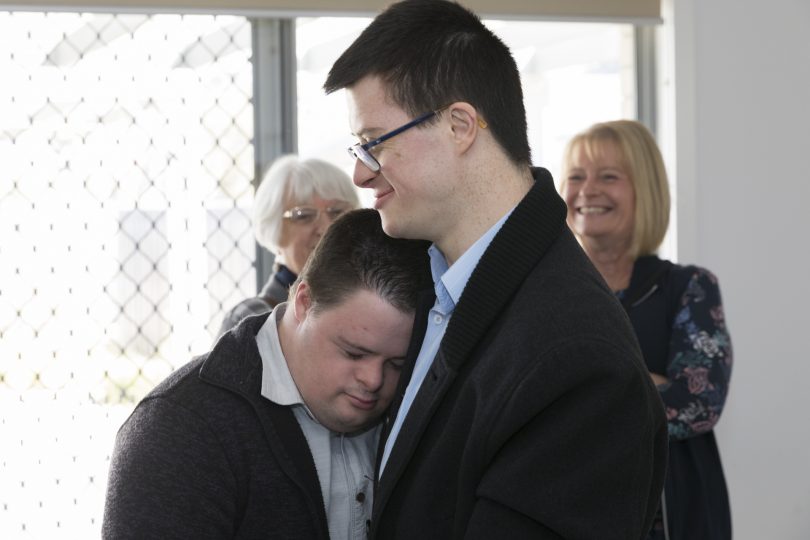
The Project Independence model promotes good relationships.
Rhys’s father, David Hill, says Project Independence also helps give parents peace of mind.
“I guess the one thing we always worried about was what will happen to Rhys in the long term,” David says. “This place takes a lot of that pressure off.”
Rhys has a job doing filing and storage for the public service in Mitchell.
“It’s been good to make some friends and know other people, close to where I work,” he said.
Independence has also been a key criterion for Isabella and her mum Kelly. They were living overseas in Qatar when Isabella turned 18 and had “absolutely no services of any kind” for her.
There were many reasons for returning home to Canberra and from the first day that Isabella moved in, she loved it.
“I moved into the room next door and thought I’d be there for a few weeks, but she asked me what I was still doing there on the first night,” Kelly says wryly.
“It’s her house, her place now. She has carers and quite a bit of support but she also has the keys to a home she owns herself. We were told that getting her into public housing would take 10 years but because she owns her unit here, she’ll won’t ever be told that she has to move out and start from scratch.
“We have two younger boys and have treated them all exactly the same. We didn’t want them to have to be responsible for her, and she wanted her independence. This is fantastic.”
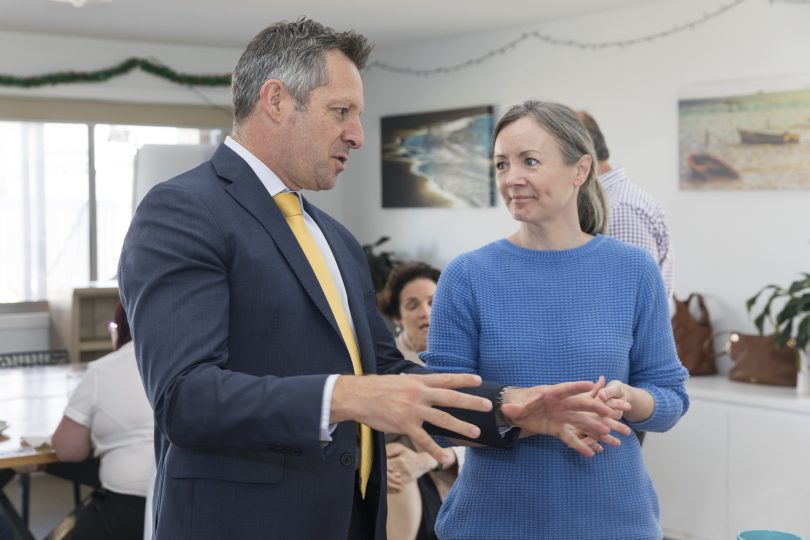
Nathalie Maconachie from Project Independence (right) says the model is unique.
Nathalie Maconachie from Project Independence explains that potential residents need to be able to take care of themselves and are also assessed on their ability to live in a group.
“We ask about their hopes, what they can do at the moment, whether they are looking for work. We’ll meet with their family, talk about how they’ll socialise and deal with arguments. The panel picks people whom we feel will be able to develop their independent living skills here.
“The idea is that Project Independence is a stepping stone,” Nathalie says. Residents pay a deposit for a 12-month trial. When that proceeds to an offer of a permanent place, residents pay with their disability support pension. Project Independence takes a proportion as payment on equity against an interest-free loan.
Once they are part of the community, a committee of residents makes the rules for living together. Support workers are in place from 2:00 pm to 8:00 pm every workday to lend a hand with cooking and cleaning, but mostly to help develop living skills like decision making, navigating relationships, and everyday tasks like filling in forms and dealing with agencies.
“Lots of young adults want to move somewhere that’s supported but not institutionalised,” Nathalie says. “We ask how we can help residents to build their financial independence and become part of the general economy.”
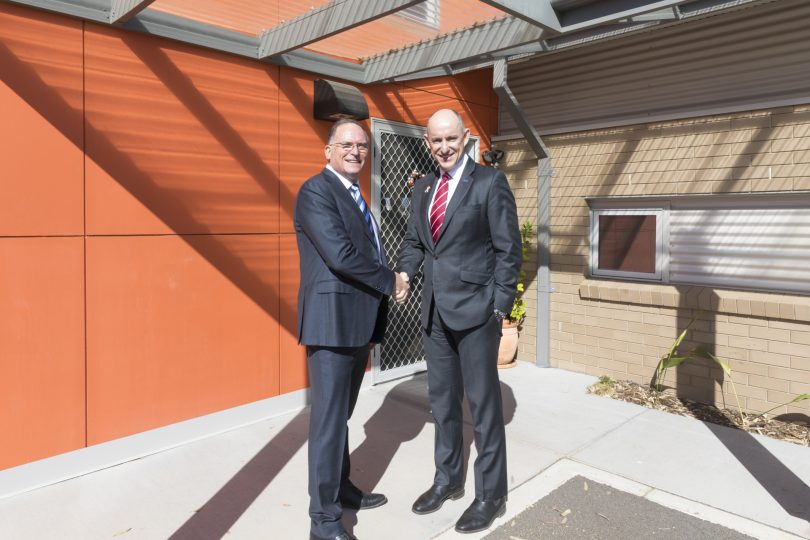
Project Independence founder Glenn Keys and Minister for the National Disability Insurance Scheme Stuart Robert.
The first sod has been turned on the Philip site, with funding from the Snow Foundation, the ACT Government and Social Ventures Australia. Icon Construction is doing the build and will donate $1 million to the project in value.
“Residents love it here,” Nathalie says. “You see such a huge variety of emotions in the families but mostly it’s a relief to see that their young adult has the opportunity to live an independent life.”
To learn more, visit Project Independence.
